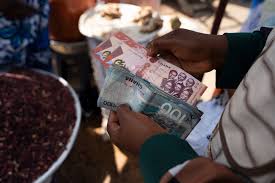Ghana in anticipation of $1.2bn disbursement from Development Partners to stabilize Cedi
Since May 2023, the IMF has already disbursed $1.2 billion to Ghana, while the World Bank is poised to release $300 million following recent parliamentary approvals.
In a bid to bolster the Cedi and offset recent economic headwinds, Ghana is poised to receive a substantial financial injection of approximately $1.2 billion from its key development partners namely the International Monetary Fund (IMF), the World Bank, and the African Development Bank by the close of 2024.
This comes as the country grapples with a 6.8% depreciation of its cedi against the US dollar in recent weeks, as reported by the Bank of Ghana.
Dr. Mohammed Amin Adam, the Minister of Finance underscored the importance of these forthcoming disbursements during his inaugural monthly press briefing. He appealed to Parliament for the green light on a $150 million World Bank facility earmarked for the GARID project, aimed at fortifying local flood protection measures.
“To further stabilise the currency, we are expecting a total disbursement of about US$1.2 billion from our Development Partners namely the IMF, the World Bank, and the African Development Bank before the end of 2024. Additional planned disbursements from ongoing projects will also support our growth interventions and strengthen the currency. In this vein, we kindly request Parliament to approve the US$150 million World Bank facility for the GARID project to enhance flood protection at the local level,” he quipped.
The cedi’s recent depreciation has been attributed by the Central Bank to increased payments in the energy and corporate sectors, exacerbated by delays in the disbursement of the second installment of the cocoa loan and the World Bank loan.
However, mitigating factors include consistent inflows from remittances, mining operations, and the domestic gold purchase programme.
On the external front, Dr. Adam highlighted encouraging signs of fiscal improvement. Ghana recorded a current account surplus of $0.46 billion in 2023, a marked turnaround from the $1.52 billion deficit in the previous year.
Similarly, the trade balance remained robust, closing 2023 with a surplus of $2.6 billion, albeit slightly down from 2022’s $2.9 billion surplus. Preliminary figures for February 2024 suggest a continuing positive trend with a trade surplus of $392 million.
Despite a marginal dip in Gross International Reserves (GIR) from $6.3 billion in December 2022 to $5.9 billion in December 2023, the Bank of Ghana remains steadfast in its support mechanisms. These include the Gold-for-Reserve Programme and the government’s Gold-for-Oil Programme, bolstered by external inflows from the IMF, World Bank, and Cocoa Syndicated Funds.
Since May 2023, the IMF has already disbursed $1.2 billion to Ghana, while the World Bank is poised to release $300 million following recent parliamentary approvals.
Source:norvanreports


